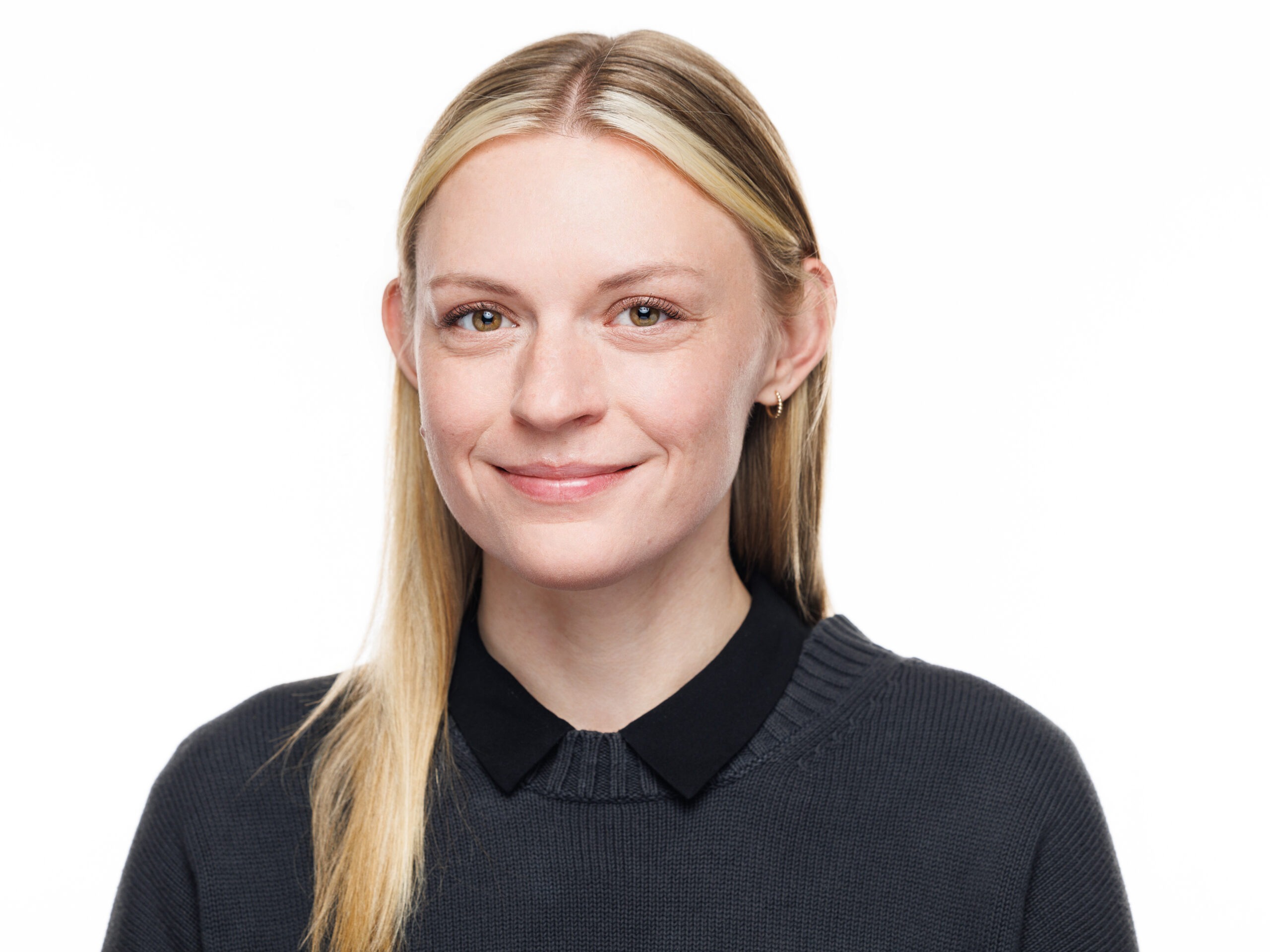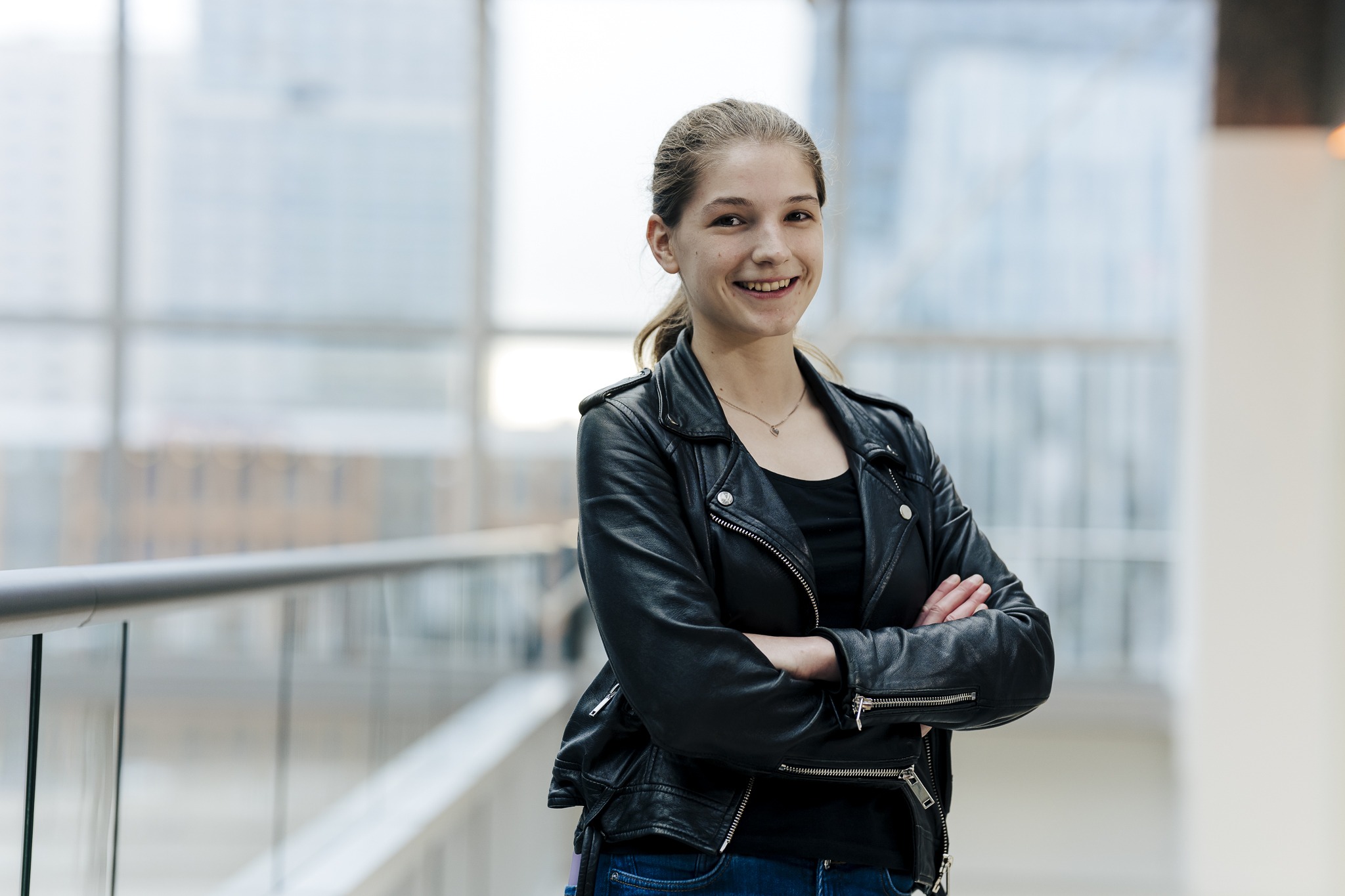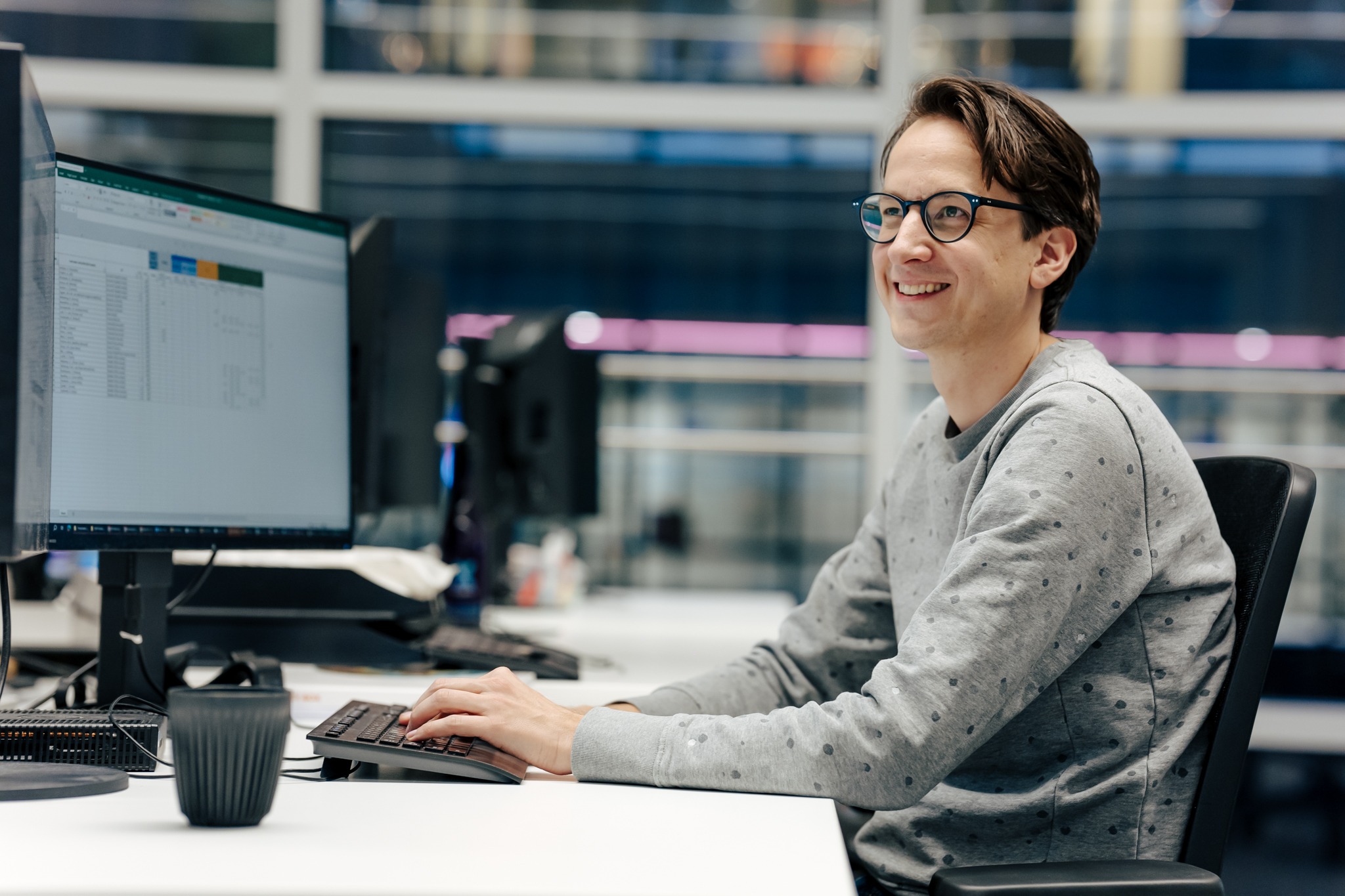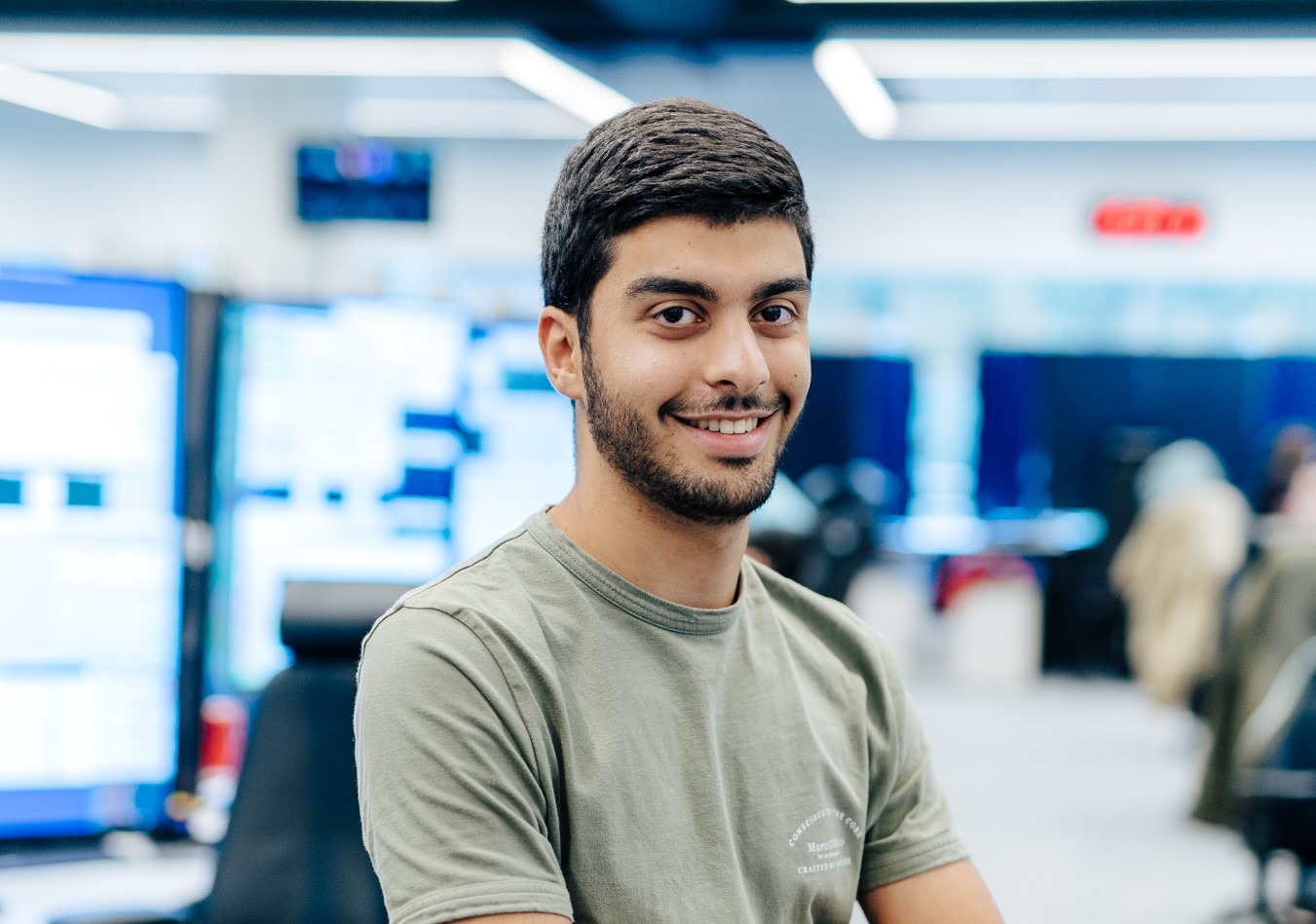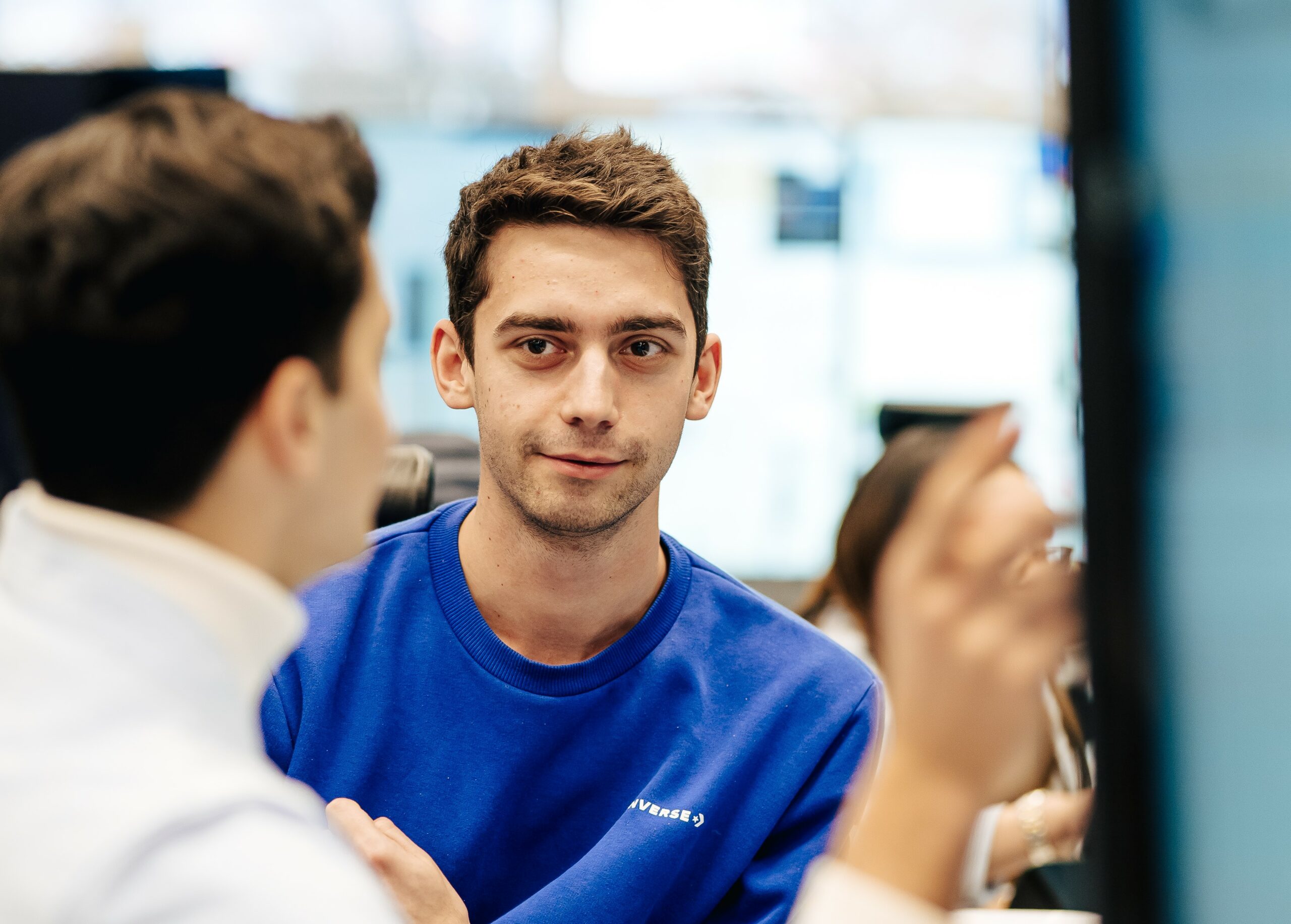From Computer Science to Quant Research: Lucy’s internship story
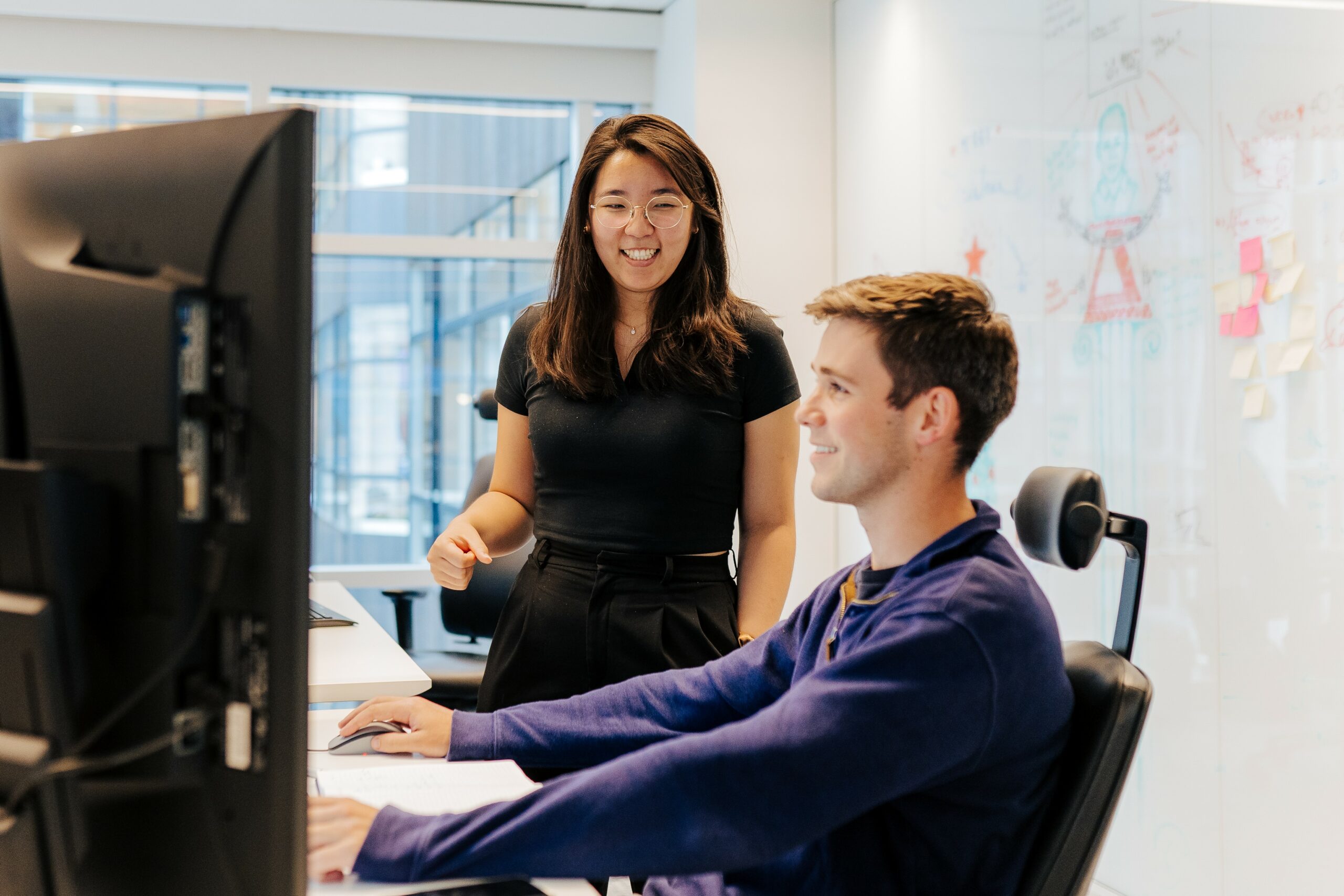
In the summer of 2023, Lucy explored the world of quant research through an eight-week internship at Optiver’s headquarters in Amsterdam. With several software engineering internships under her belt, Lucy shifted her focus to finance, driven by a fascination with the dynamic and intellectually challenging environment of quantitative trading.
During her internship, we had the opportunity to speak with Lucy about her experiences and how they have shaped her professional aspirations in the finance sector. Now, as she prepares to return to Optiver as a full-time graduate Quantitative Researcher, we take a look back at her journey and the key moments that influenced her career path.
Meet Lucy
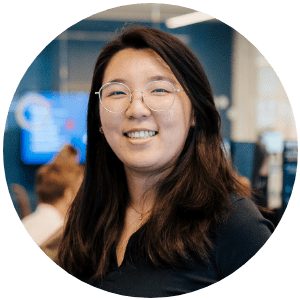
Comes from: The United States
Hobbies: Museums, video games, good food
Study background: Computer Science and Physics, Harvard
Q: Can you tell us a bit about yourself and your background?
A: My name is Lucy, I’m 22 years old and a rising senior—so going into my fourth year at Harvard, studying Computer Science and Physics as a joint concentration.
Q: What drew you into trading and inspired you to apply for Optiver’s Quantitative Research internship?
A: Alongside my studies, I spent the last three years interning and working as a software engineer at various companies, which while interesting, was boxing me into a role I didn’t necessarily want to spend the rest of my life doing. In exploring other career options, friends of mine in quantitative trading inspired me to check out the industry based on how engaging they found their own work. I’m really glad I took their advice.
They had recommended a few companies to investigate, including Optiver. I was intrigued by the Amsterdam internship listing. People ask me why I didn’t choose Chicago, but I felt it was good to spend some time outside the US. I like the Amsterdam vibe a lot so far.
Q: What stood out to you from your interview process?
A: I’d say the final part with project-based work. For Quant Research, they gave me a task to do and some data—very open-ended. Given the data and the task, you had to make a good recommendation or come up with a well backed-up answer. It was exciting and challenging, and I found the freedom really interesting.
Q: How did the onboarding and the first few weeks of your internship at Optiver go?
A: The onboarding was very smooth—both with HR onsite and within the program itself. You don’t have to arrive knowing loads about finance because the first two weeks are theory-based—a full introduction to stocks, futures, options, and it builds from there. You’re given everything you need to succeed, plus you can ask your trainers and peers anything. Theory-wise you’re prepared to quite a good level having started knowing nothing.
Q: What did you think of the simulated trading time?
A: The simulated trading time was probably one of the most unique and memorable things about this internship for me. Before this, I really didn’t know what a trader did. It gave me a much better idea of what traders do, at least at Optiver, because I think the systems we use are Optiver-specific.
Getting into the market and watching all the market-price screens is so interesting, and then learning how to use all that information to make good, educated trades. I’d never done that before, and it was particularly exciting—a lot of work, but quite novel to me. It’s a lot to take in, so they introduced information progressively to us over the two weeks of simulated trading. Every few days, they’d add another signal to look at to use on our trading desk. Gradually you build up the knowledge of how to use each one. It’s only a small fraction of what the real traders on the floor do, but it’s definitely a valuable learning process.
Q: You’ve now started the project phase of your internship. Do you have a mentor within your team?
A: I work on a project with one other intern on the Delta1 Cash Equities team and we have two mentors. We trade ADRs—American Depository Receipts—or, more simply put, the spread between the same stock in two different countries. Both my mentors are really nice, incredibly busy traders, but they always manage to make time for my questions about the instruments we’re trading.
My mentors are definitely the point-people I would go to first. But there are also others on the team we can go to with questions—which is so helpful because there are times when a question may be more model-specific, or I need help determining whether statistically something is correct. We also have a data analyst on our team, so just being able to ask him, “I have this specific Python Pandas data frame types question” or “Is this reasonable?” That helps because he might have a bit more insight than my mentors who are more on the trading side.
Q: How would you describe your day-to-day right now?
A: Since I don’t need to trade anymore, I start around nine. My project partner and I usually spend the first 10 to 30 minutes either setting up our desk or looking over what we did the day before, and figuring out our goals for the day. We then divide up our individual tasks or check in with a mentor or team member to make sure we’re going in the right direction.
We’ll also often do pair programming, where we sit together over one screen, discussing our results: are they as expected, do we want to do something different, or do we need help? Usually, we talk it over and come to a consensus that we bring to our mentors. I really like this dynamic, because we can split off when there’s work, we can parallelise, and then we come back together to talk about our results, getting help from mentors if needed.
Q: How would you describe the work culture?
A: Everyone at Optiver is very open and collaborative. People will either tell you directly about their project or tell you openly how much they can share. I don’t really know how it is at other finance firms, but I’ve heard many of them are siloed into different teams. For example, our trading floor here is all one floor. You can walk around and talk to anyone. The openness in the culture is a big plus.
I also find people here are very good at pushing you to learn and grow as much as possible. With our trainers, any critical feedback you receive is respectful while insightfully pinpointing exactly what you need. They may ask you what seems like a bullet storm of questions, but it’s to understand your thought process so that you can learn from theirs, to get you to ask yourself the right questions. That’s been incredibly helpful. I think knowing the right questions to ask is more important than knowing the answer—it’s like a double-check on your thinking. Are you thinking logically? Are you making decisions based on a gut feeling? What does your gut feeling tell you and why? Is it based on data? Or are you just guessing?
So rather than just giving you the answer, they’re giving you the question and the way of thinking. It rewires your brain to think in a more streamlined way, which makes you more self-sufficient.
Q: Can you share more details about your project?
A: So as I mentioned, our Delta1 team trades ADRs or American Depository Receipts, but also BDRs—Brazilian Depository Receipts. Take ASML for example, a Dutch company which trades in Europe. You can have an ASML ADR that trades in America, which is supposed to be like the American equivalent of ASML. In the different markets, one stock or another can go out of line, and you can trade off that spread. You can essentially market make the ADR based on where the European listing is trading.
My project is looking specifically into auction prices, because at the end of the day in Brazil, all stocks go into auction. We’re looking at whether we can see any difference between what the
auction will uncross at in Brazil and if we can hedge what we buy or sell in Brazil, with ADRs in America for those Brazilian stocks. We’re doing our best to see if we can predict it.
Q: And how have you found the social aspect?
A: The internship program has organised really fun activities. We went to an escape room, plus this place called Sector, which was like a cooperative game where you go into rooms that each have tasks in them. You just try to score the best you can—we had a great time. We also had a beautiful boat cruise through the canals and rivers of Amsterdam. We interns usually go out on weekends—you can always grab a group of people, and it’s always good fun.
Q: Last question: Do you have any advice for potential interns interested in applying?
A: I would say Optiver cares a lot about the people they work with. Being willing to grow and having a certain drive is really important. And of course you need to pass the bar for technical ability. But don’t feel intimidated if you lack finance knowledge because they’ll teach you everything you need to know. I honestly wasn’t sure whether finance was for me, but currently I’m enjoying it a lot, so I feel like that’s not a filter. I would just say, go for it.
Start your journey
If you’re inspired by Lucy’s story and are interested in exploring a career in trading, quantitative research or engineering, check out the opportunities below, or visit our internship page to learn more.
Chicago / Austin:
Application are closed. You can sign up below to get notified when they open up again.
Amsterdam:
Application are closed. You can sign up below to get notified when they open up again.
